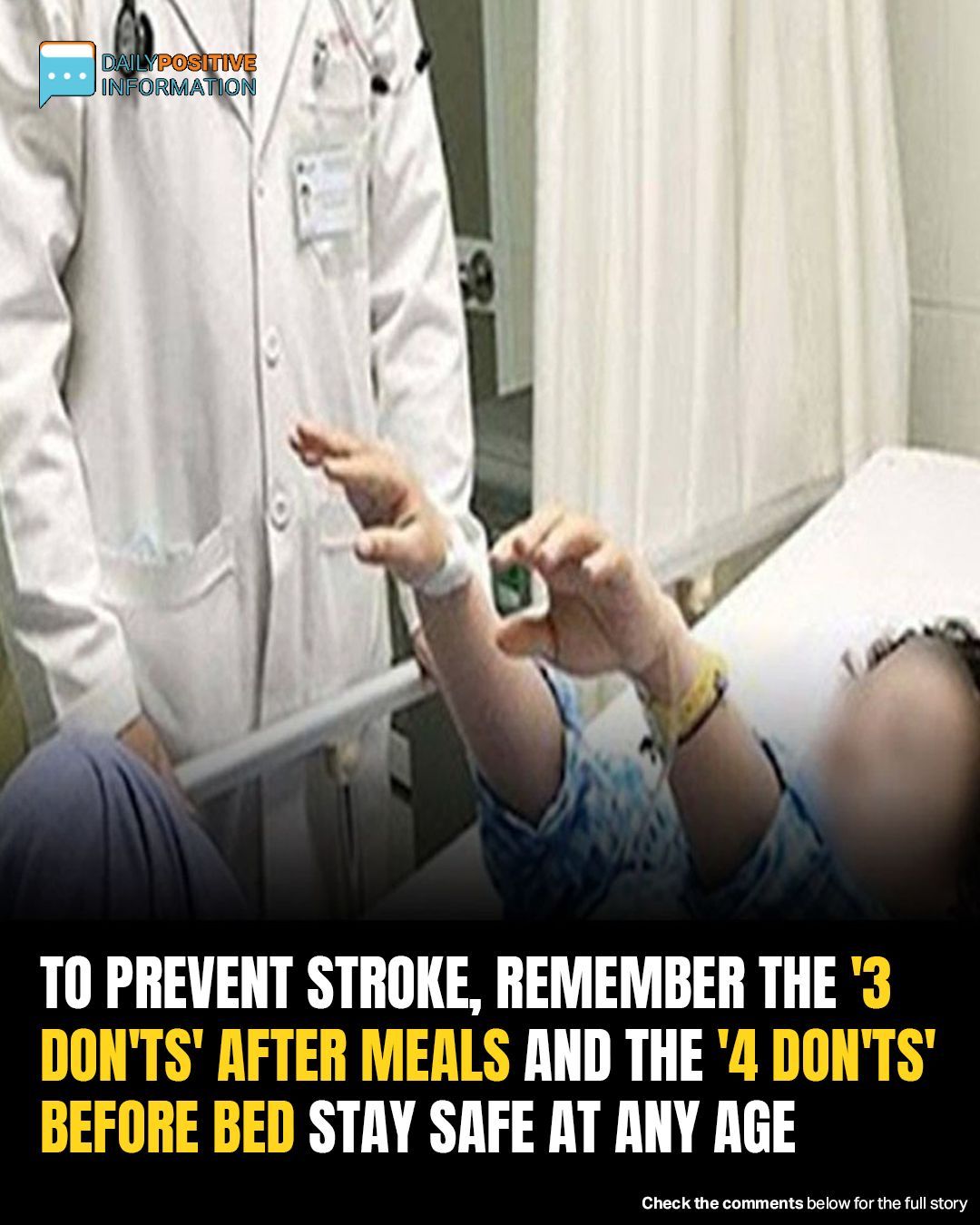
HealthPreventing Stroke At Any Age: 3 “Don’ts” After Meals—And 4 “Don’ts” Before Bed
After Meals: Three Things Not to Do
Don’t sleep or nap immediately after a meal
Many people feel drowsy after eating and may be tempted to lie down or nap. But this habit disrupts digestion and can impair metabolic regulation. Poor meal–sleep timing is linked to insulin resistance, overweight, and high blood pressure over time—major stroke risk factors. Studies show meal timing influences sleep quality and cardiometabolic outcomes. Keeping at least 2–3 hours between your last meal and any nap or bedtime helps maintain optimal digestion and sleep health.
Don’t stay sedentary after meals
Avoid immediately reclining or collapsing onto the couch. Instead, take a post‑prandial walk of ~20 minutes. Observational data show that light activity helps regulate blood sugar and blood pressure, reducing risks of type 2 diabetes and hypertension to stroke. In one study, walking speed increases were associated with a 13 % reduction in stroke risk. Even modest walking after meals supports healthier post‑meal glucose response and improves vascular health.
Don’t immediately consume alcohol after eating
Many people enjoy a drink right after dinner to unwind. However, recent evidence shows any significant alcohol intake, even moderate, raises inflammation and damages vascular cells. One large international study linked moderate and heavy drinking to higher stroke risk, even with infrequent binges. Rather than a nightcap, choose herbal tea or water after meals to support better metabolism and vascular recovery.
Before Bed: Four Things Not to Do
Don’t eat dinner too late (e.g., after 9 p.m.)
Eating your last meal too close to bedtime, especially after about 9 p.m., disrupts your circadian rhythm and impairs metabolic balance. The NutriNet‑Santé cohort of over 103,000 adults in France found that dinners after 9 p.m. were associated with a 28 % higher risk of cerebrovascular disease (including stroke) compared with meals before 8 p.m. Moreover, delaying breakfast or dinner by each hour increased overall cardiovascular risk—even when accounting for diet quality and activity.